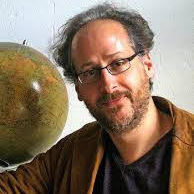Jews Out of the Question: A Critique of Anti-Anti-Semitism
Graduate Theological Union, Dinner Board Room, Flora Lamson Hewlett Library, 2400 Ridge Road
Professor Elad Lapidot, Senior Lecturer, Philosophy and the Talmud, University of Bern
The talk will reflect on the role that opposition to anti-Semitism has been playing in shaping political philosophy after the Holocaust, in authors such as Adorno, Horkheimer, Jean-Paul Sartre and Hannah Arendt, to Alain Badiou and most recently Jean-Luc Nancy. The basic critical observation concerns the way in which post-Holocaust philosophy has identified the fundamental, epistemological evil of anti-Semitic thought not in thinking against Jews, but in thinking of Jews. In other words, so the claim, what philosophy has been denouncing as anti-Semitic is the figure of “the Jew” in thought. It is paradoxically the opposition to anti-Semitism that has been generating in post-Holocaust philosophy a rejection of Jewish thought, which in some respects is more radical than previous historical forms of anti-Judaism.
For more information, please visit The Center for Jewish Studies at the Graduate Theological Union event webpage, as well as The Center for Jewish Studies at the Graduate Theological Union webpage.
Elad Lapidot is a senior lecturer for philosophy and Talmud at the University of Bern and the Humboldt Universiy Berlin, as well as the Center for Jewish Studies in Berlin. His work is situated between contemporary philosophy and rabbinic thought, and is guided by the question concerning the relation between epistemology, hermeneutics and politics. He translated into Hebrew works by Levinas, Husserl, Heidegger and most recently Hegel’s Phänomenologie. Among his publications: Heidegger and Jewish Thought: Difficult Others (ed. With M. Brumlik, London/New York: Rowman & Littlefield, 2018), Jews Out of the Question: A Critique of Anti-Anti-Semitism (Albany: SUNY Press, planned publication date: October 2020).
This event is co-sponsored by the Department of Rhetoric, the Taubman Chair, the Richard S. Dinner Center for Jewish Studies at the Graduate Theological Union, and the Berkeley Center for the Study of Religion

